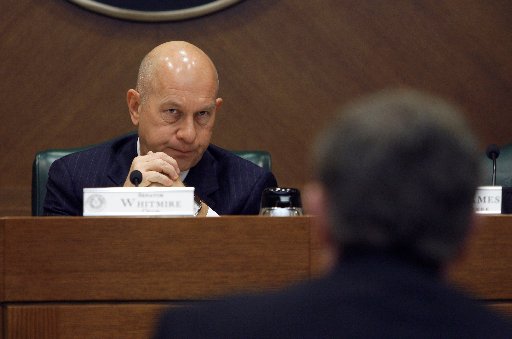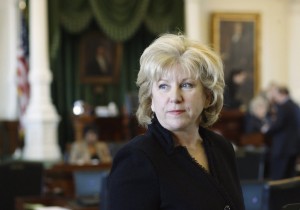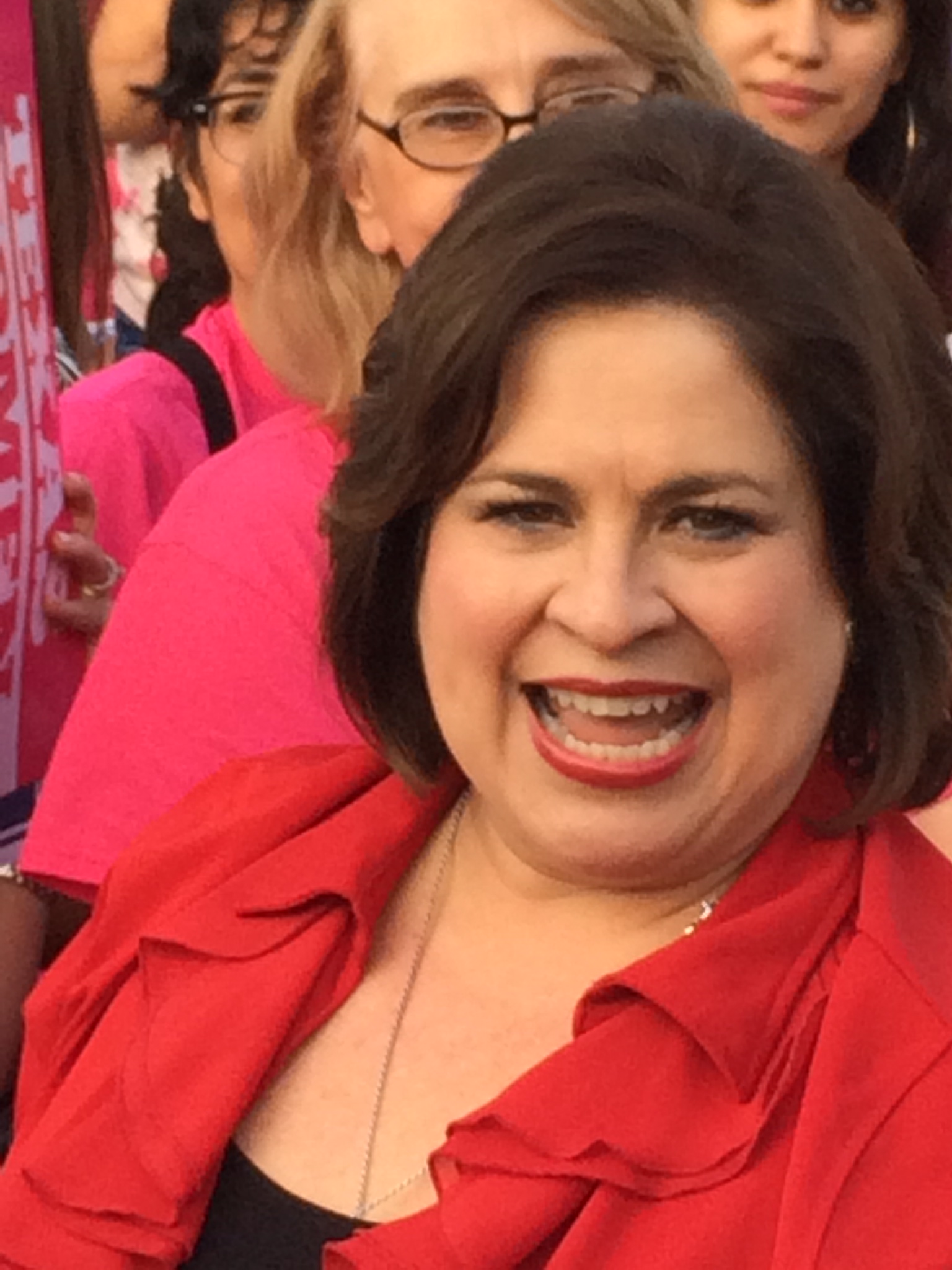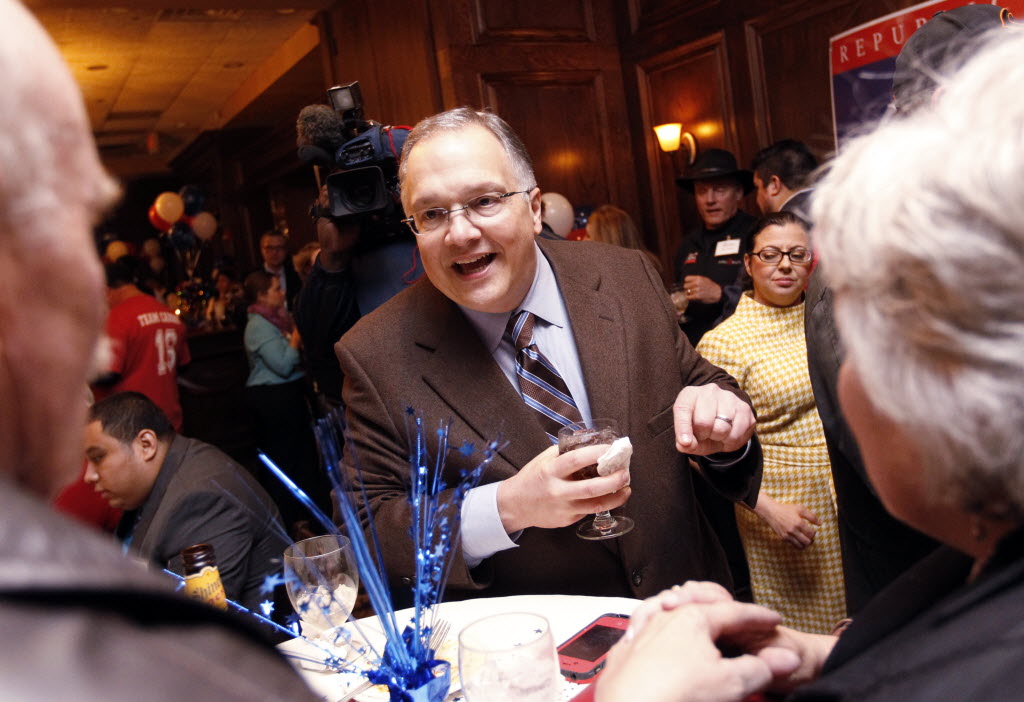
Sen. John Carona talks with a supporter in Dallas on primary night in March. (Kye R. Lee/Staff photographer)
Update at 3:25 p.m.: Have corrected date of Paul Reyes’ and Helen Carona’s contributions to Patrick: They gave on the same day in 2013, not this year.
Original item at 12:43 p.m.: Dallas state Sen. John Carona has continued to make peace with fellow Republican and lieutenant governor candidate Dan Patrick.
The political action committee at Carona’s business Associa Inc., which manages homeowners’ assocations across the country, gave Patrick $5,000 earlier this week, according to telegram reports to the Texas Ethics Commission.
As my colleague Terrence Stutz reported here nearly 2 1/2 years ago, Carona called Patrick a “snake oil salesman” and a “narcissist that would say anything to draw attention to himself.”
Patrick, R-Houston, said in an email to all senators that Carona had spread a false rumor that Patrick and his wife, Jan, were divorcing. Carona, R-Dallas, replied that Patrick should have first checked with him regarding the allegations before contacting their colleagues. Carona also raised the ante, mentioning rumors about Patrick’s sexual orientation as well. Patrick dismissed as “a lie” suggestions he is gay and demanded Carona apologize.
At the time, Carona didn’t. Late last year, though, the Associa PAC gave $30,000 to Patrick, even as Carona didn’t personally endorse him in the GOP lieutenant governor primary.
In March, Carona lost his Senate seat to tea party-backed Republican Don Huffines in a GOP primary. Since then, he has endorsed Patrick.
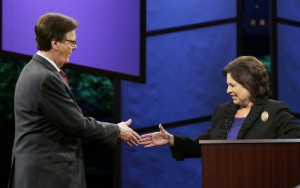
Dan Patrick and Leticia Van de Putte shake hands at their televised debate last month. (AP Photo/Eric Gay)
As I reported in a story in Wednesday’s newspaper, Associa executive Paul Reyes, a former Carona Senate staff aide, contributed $20,000 to Patrick. That was on top of $5,000 Reyes gave to Patrick in August 2013 — the same day Carona’s wife, Helen, chipped in $2,500 to the Patrick cause.
It appears that Associa may have some legislative irons in the fire.
Meanwhile, Sen. Leticia Van de Putte, Patrick’s Democratic colleague and opponent for lieutenant governor, reported more than three times as many late contributions as did Patrick.
This week, she took in more than $82,000, to about $23,500 for Patrick.
Just more than half of the contributions on Van de Putte’s telegram reports came from groups supporting abortion rights. Planned Parenthood’s PACs in New York City and Austin donated nearly $30,000 of staff time, phone calls and postage. Annie’s List gave the San Antonio lawmaker a $13,000 check.
As I noted in Wednesday’s story, Patrick strategist Allen Blakemore belittled Van de Putte’s matching Patrick’s fundraising haul of $2 million between Sept. 26 and Saturday. Blakemore noted that one-third of her money was in-kind donations from Planned Parenthood, the liberal group Texas Organizing Project and voter-organizing Battleground Texas.
On Thursday morning, Logan Spence, a long-time Patrick aide, seized on the late assists from Planned Parenthood PACs as a sign Van de Putte would try to lead the Senate in a very different direction on abortion than Patrick would. But then we knew that, didn’t we?
Here’s Spence’s tweet on the subject:







